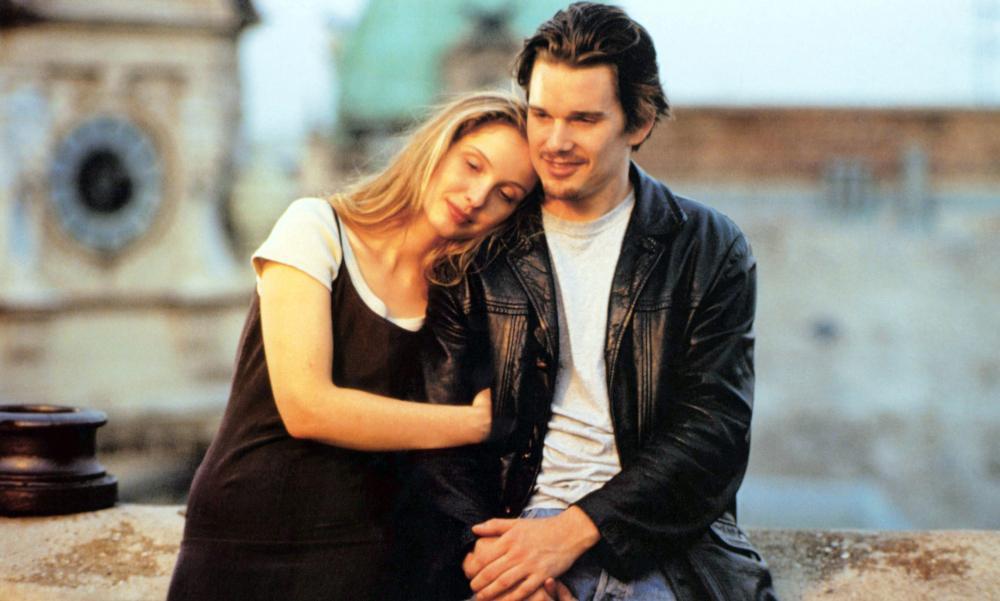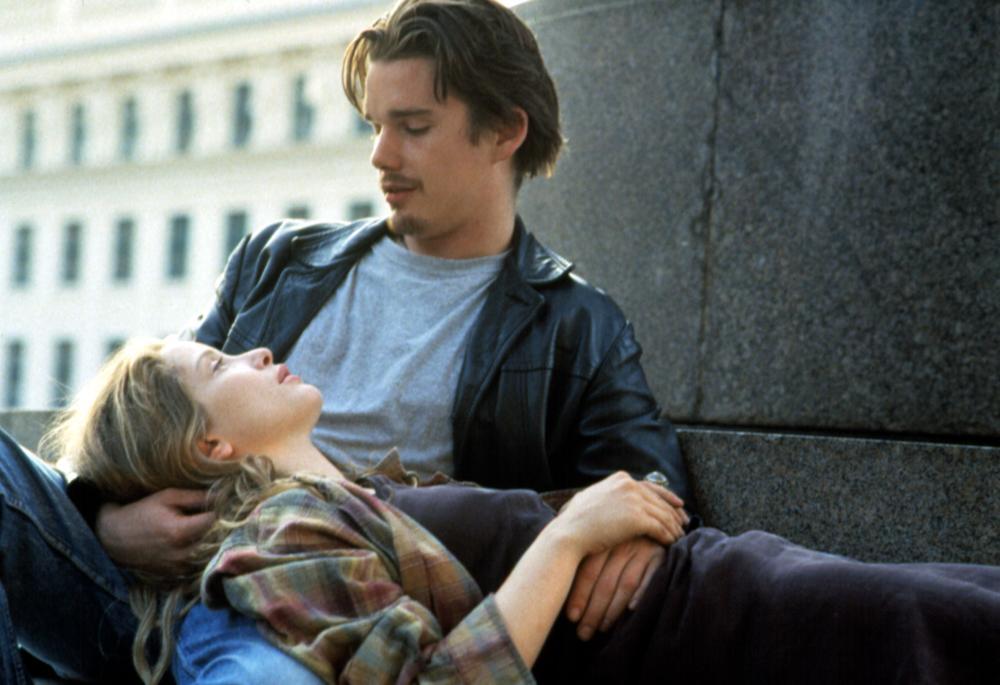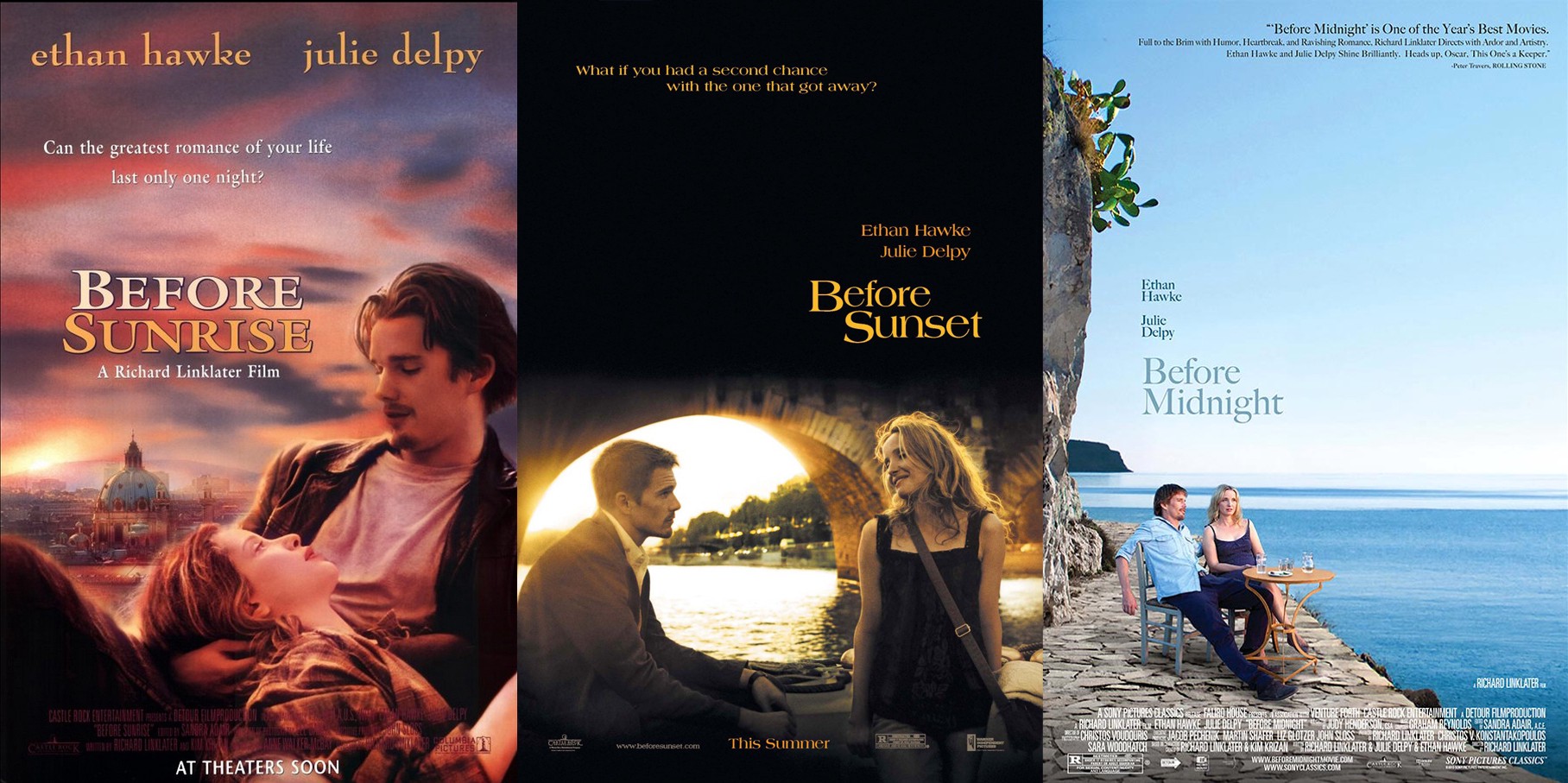By Valia Nikolaidou,
When it comes to movies, belonging to the romance or “rom-com” genre, it is very common for them to feature clichés, extravagant gestures, and stories that ultimately would belong better in the fantasy genre due to their unreliability to real-life standards. Over-the-top romantic gestures that usually include the public’s contribution to the act, such as Patrick seducing Kat by singing for her in front of the entire school in 10 Things I Hate About You or the classic profession of love taking place in an airport or a train station as the love interest is about to leave; two great examples of this trope are in Casablanca and Love Actually. The Before trilogy steers away from this pattern and instead gives us a script where in reality, nothing really happens except for the conversations between the two protagonists.
The Before trilogy is directed by Richard Linklater and consists of the movies Before Sunrise (1995), Before Sunset (2004), and Before Midnight (2013). It stars Ethan Hawke and Julie Delpy as the carefree American traveling through Europe, Jesse, and the cautious but creative French girl, Celine, who is returning back to her home country after visiting her grandmother. In the first movie, they meet on a train to Paris that however makes a stop in the city of Vienna, so they decide to get off the train and explore the city together for the night. Even though their attraction toward each other is off the rails, they both realize that there is no prospect of anything more than a one-night stand. In the following movie, we see fate bringing them back together with the prospect of starting their new life together and by the third movie they have a family, have been married for years and many problems have arisen in the family dynamic because of routine.

The film’s main focus is the power dynamic between the two characters and the attraction that consumes them. Their deep conversations translate into their thirst for wanting to get to know one another against the ticking clock that always seems to chase them, especially in the first two movies. One of the most wonderful things about this trilogy, is the carefully structured format of the dialogues even though the audiences are given the impression that the actors are heavily using improvisation but this is completely false; according to Linklater and the scriptwriters of the films, not a single word or sentence was left unattended and without thorough examination which would ensure the linearity of the dialogues. The films manage to showcase completely normal conversations that hold a natural tone, while at the same time being a great example of refined cinema.
Moreover, the cultural differences between Jesse and Celine are evident in the way they perceive the world; however, they make the film infinitely more interesting and their conversations more authentic as to how they managed to form such a special bond despite their completely different lifestyles. The raw realism that is conveyed in their dialogues, is a beautiful way of showing the start of a blooming romance with real-life standards and not with unachievable gestures and clichés like the ones that are portrayed in roughly, every other romantic movie ever. Finding love and getting together with your soul mate is a task hard enough in the social media era that we are living in; let alone if we have huge expectations of how a romantic experience should be based on movies. The Before trilogy shows also the “uncomfortable” aspects of getting to know someone romantically; the awkwardness and the tension, the vulnerability that comes with opening up, and the silences between conversations that can usually feel weird, except when you are with the right person.

Lastly, the simple directing and shots of the beautiful cities of Vienna, Paris, and of a picturesque village in the Peloponnese respectively, make these movies a staple in alternative cinema and a great representative of a movie belonging to the “romance” genre. The many awards in various significant film festivals worldwide further demonstrate that the Before trilogy is one of the greatest examples of the seventh art despite using inherently simpler ways of filmmaking. It is worth watching all the movies back-to-back and getting to experience the heartwarming story of Jesse and Celine.
References
- Before Trilogy, criterion.com, Available here
- “Before Sunrise”: The Making of an Indie Classic, nytimes.com, Available here
- Why Richard Linklater’s ‘Before’ Series Is the Greatest Trilogy of All Time, collider.com, Available here




